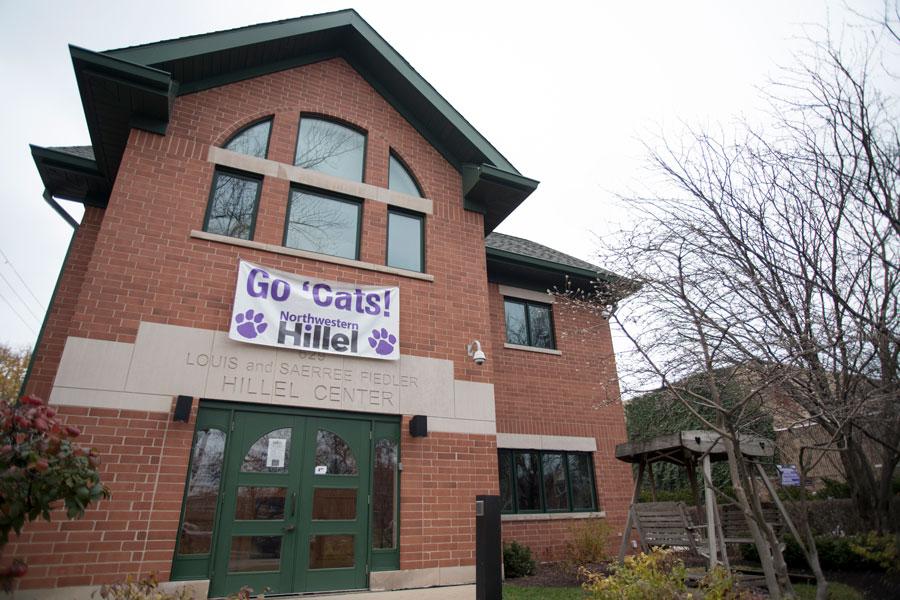Religious student groups find community in limited in-person gatherings
Daily file photo by Colin Boyle
Hillel’s food service was the only Passover-appropriate, kosher on-campus dining option during the weeklong celebration. Students were able to pick up lunch and dinner to-go and free of charge.
March 2, 2021
As COVID-19 restrictions loosen, some student religious groups are holding in-person events to welcome students to campus.
To recreate feelings of community, Catholic, Muslim and Jewish students on campus have been hosting a mix of religious and social events remotely or in-person.
Rabbi Jessica Lott said Northwestern Hillel has been building community by distributing Shabbat care packages to students. The feeling of community, Lott said, is an important part of Hillel and being Jewish.
Hillel President Tamar Jacobsohn said she appreciates the opportunity to connect with other Jewish students, especially incoming freshmen and sophomores. Jacobsohn said celebrating the High Holidays in September could have been “isolating” and “difficult” for some since many synagogues were closed. The Friday night Shabbat meal pick-ups allow for even the smallest of interactions, which Jacobsohn said makes a difference.
“Even though you’re only seeing a staff member or other students in a mask for five minutes, it still creates some semblance of community,” Jacobsohn said.
As limited in-person masses open up on campus, Weinberg sophomore Peter Ha said he is glad to be able to return to the community and faith he finds in the Catholic Students Association and the church.
CaSA board member Filippo Ferraresi said the Bible emphasizes the importance of sharing as a community. He said he feels the “power” of bringing worship gatherings back to an in-person setting.
“It’s very clear from the Bible and the Catholic teachings that the sacrament and the adventure should be shared as a community,” Ferraresi said. “It is a powerful element being able to celebrate things in person.”
Although the Muslim-Cultural Students Association has not held in-person programming, they have continued spiritual and social events over Zoom. They invited four guest speakers to their Discover Islam Week, where students were able to hear about topics relating to Muslim identity and faith.
Members of CaSA and Hillel have also been hosting prayer groups over Zoom. Ferraresi said he appreciates being able to send a message in the group chat to get a group together for prayer, even virtually.
While Hillel’s Zoom meetings are different, Jacobsohn said they are an important part of staying connected to her community. Her fellowship meets for Shabbat prayer every Friday.
“It encourages you to go every week and to keep that connection in the community,” Jacobsohn said. “While it’s not the same as sitting in the Hillel building all the time or hanging out, Hillel is making a lot of intentional effort to have community.”
Just as Jewish students were unable to celebrate their High Holidays together in September, McSA President Jihad Esmail said he was unable to celebrate Ramadan in April of last year.
Ramadan is typically celebrated by fasting until sundown, and then eating dinner with your family and friends as well as praying at a mosque. Esmail said being unable to celebrate Ramadan in the traditional manner was disappointing, but gave him time to reflect on his faith.
“Being at home in COVID really makes you more independent in your faith,” Esmail said. “You realize that your relationship with God is strictly based off of your choices… and not necessarily the fact that it was built into your central schedule.”
Email: [email protected]
Twitter: @KatrinaPham_
Related Stories:
— A new kind of New Year: Hillel’s virtual plans for the High Holidays
— Hillel symposium continues campus conversations about Zionism, anti-Semitism and racial justice


